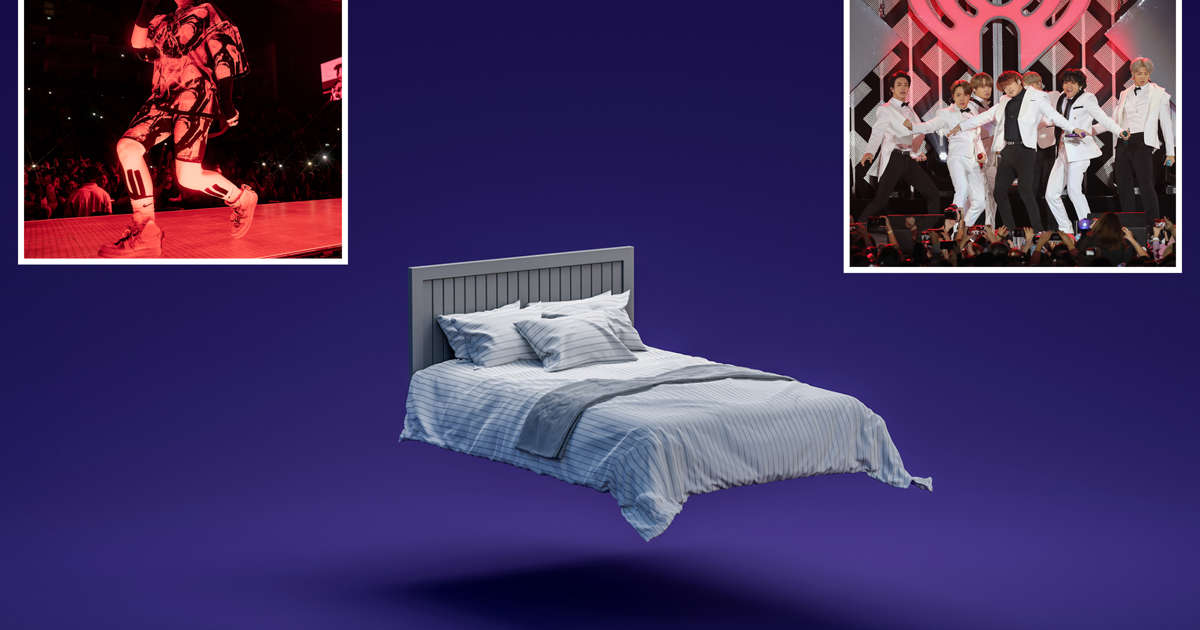
It may be time to add some energetic pop music to your soothing sleep playlist.
A team of Denmark researchers found there is not a “one size fits all” genre of music people play to fall asleep.
“It was surprising to see how many different types of music people use for sleep,” Kira Vibe Jespersen, an assistant professor at the Centre for Music in the Brain at Aarhus University, told The Post in an email.
“Not only different genres, but also different audio characteristics … ranging from slow, soothing instrumental tracks to more energetic uptempo pop music.”
The authors of the study, published this week in the journal PLoS One, analyzed more than 200,000 songs from nearly 1,000 Spotify playlists associated with sleep.
© Provided by New York Post
Billie Eilish performs at The O2 Arena on June 10, 2022, in London. Samir Hussein/Getty Images for L
While the researchers said they have not collected data on if uptempo music actually helps people sleep, they do know people use it for sleep.
They were able identify six distinct sub-categories of music that people turn on when it’s time to get some shut eye.
Co-author Rebecca Jane Scarratt told SWNS that three of the subcategories, including ambient music, align with the typical characteristics identified for sleep music. However, the music in the other three subcategories was louder and more energetic.
“These tracks included several popular songs, including ‘Dynamite’ by the band BTS, and ‘Lovely’ by Billie Eilish and Khalid,” Scarratt said.
The authors also list “Jealous” by Labrinth, “Falling” by Harry Styles, and “The Scientist” by Coldplay as popular additions to sleep playlists.
© Provided by New York Post
While the researchers said they have not collected data on if uptempo music actually helps people sleep, they do know that people use it for sleep. Getty Images
In some cases, familiarity with songs — even loud tunes with vocals — may help with relaxation.
“Our hypothesis is that familiarity with the music makes the music very predictable to the brain, and this predictability may enable sleep, despite the music being upbeat and energetic,” Jespersen told the PA news agency.
“We are currently working to test this hypothesis.”
© Provided by New York Post
BTS performs during the iHeartRadio KIIS FM’s Jingle Ball show at the Forum on Dec. 6, 2019, in Inglewood, California. WireImage
The researchers still have data to collect. Without any sleep data from the music lovers, Jespersen said, they can’t be certain that tunes with a higher degree of energy help induce sleep.
“People listen to music at bedtime for different reasons. One reason can be to facilitate relaxation, but music may also be used for mood regulation, distraction or for masking external noise,” she added.
Scarratt said these findings could “both inform the clinical use of music and advance our understanding of how music is used to regulate human behavior in everyday life.”